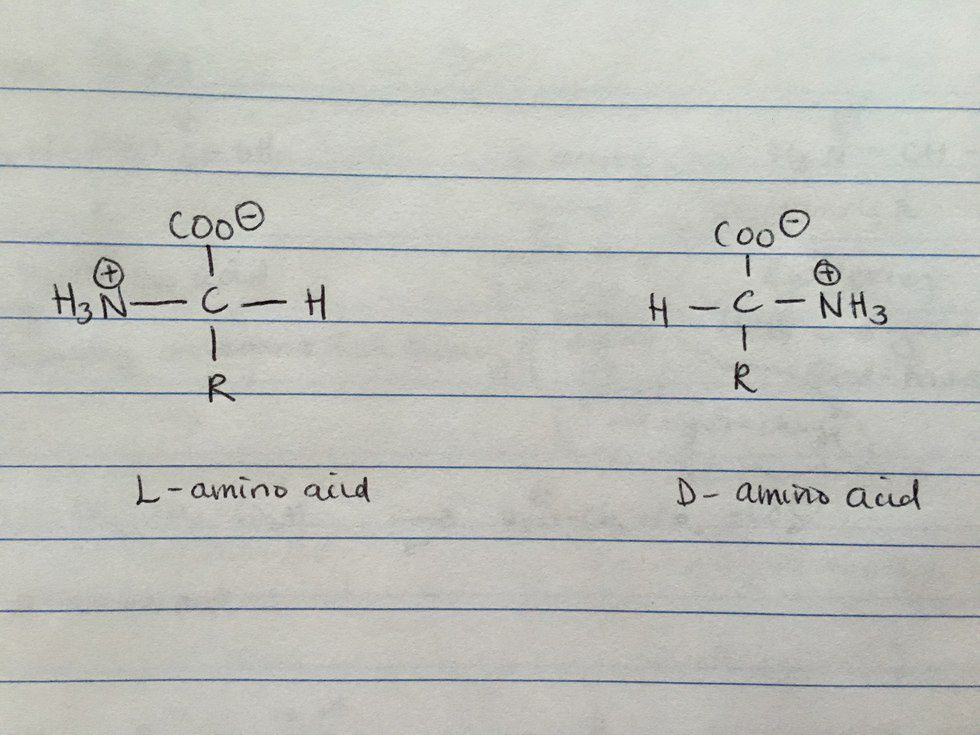“Chinese Restaurant Syndrome” describes the lethargy and intestinal queasiness after that regrettable/YOLO 10 PM delivery order. We all love an $8 sesame chicken combo with fried rice and an egg roll, but at what health cost? This syndrome has become an epidemic, and it's the first thing we associate with Chinese take-out. The alleged culprit? Monosodium glutamate.
Several personal anecdotes have pointed to MSG as a cause of discomfort, and now this belief of causation proliferates through the American culture, from people claiming MSG allergies to restaurants claiming “No MSG” as a business tactic.
While it’s easy to simply jump on the bandwagon and avoid MSG because of its adverse health effects, the extremity of these accusations associated with MSG raises questions.
What about MSG makes it intensely unsuitable to our bodies?
We have to consider, first of all, that our own bodies make the glutamate part of MSG. And that chicken, without any seasoning, makes this glutamate, too. Tomatoes have glutamate, and so does cheese, yeast, and especially corn. Moreover, since sodium is also naturally occurring in many foods, monosodium glutamate is synthesized in these foods by the hands of nature. So that slice of chicken cutlet pizza you’re eating? MSG overload—no matter how organic, natural, free-range, antibiotic-free, fat-free, low-sodium the ingredients are.
MSG carries such a negative connotation that it scares many to know that everyday foods, not just take-out, have MSG. Some people may consequently avoid ingredients with high MSG content (but what would they eat then?), while some people will continue to avoid only those foods that make them feel lethargic and uneasy. If that’s the case, then can we really use MSG as the indisputable scapegoat?
We need to clarify that correlation does not equal causation. The misconception may lie in the structural chemistry of MSG, just as there is more than one type of cholesterol because of its structure. This glutamate of MSG transforms into and is in equilibrium with glutamic acid, which happens automatically with just a quick chemical reaction. Glutamic acid is a nonessential amino acid, which means that it is a protein building block that our bodies make, and therefore we do not need to ingest any from our surroundings to survive.
The trick here is that all natural amino acids — for example, the glutamic acid in us, in chickens, cheese, and tomatoes — have an L structure.
Quick chem: Because one of the carbons in a typical amino acid has four different groups attached to it, it is chiral, and thus the arrangement of the groups attached to it is crucial to the acid's properties and functions. D and L designation is used to describe whether a certain group attached to this chiral carbon is to the right or to the left, respectively, of the carbon in a Fischer projection when the position of the top and bottom groups have been standardized. For an amino acid, standard layout means carboxylate on top, variable R group on the bottom, and amino group as the determining group. While all natural amino acids are L structure, common artificial methods of amino acid synthesis give a mixture of both D and L.
MSG additive is suspicious because it contains a mix of both D and L structures, since it is synthesized in a laboratory instead of extracted from an organism. However, the MSG molecule was discovered through natural means, by a Japanese experimenter who isolated it from seaweed, so its use in the food industry did begin naturally.
Multiple studies have been done to try to isolate the effects of MSG on humans, but as with all science, they've yielded mixed results and have been accused of bias. And as with many things, accusations vary by twisting the same set of facts to conform to one’s own opinions. You might notice that all parties concerned with specific diets and health fads condemn the MSG additive, while those concerned with the food industry as a whole dismiss MSG as safe and useful; it’s all about personal interests, especially financial ones.
For this reason, I’m not here to tell you to avoid MSG by all means or to completely disregard its potential health hazards. I am just as unsure about its health effects as everyone else, although everyone else seems to be adamant about their certainty. It’s not the end of the world to not have a set opinion. Furthermore, it’s better to be skeptical of what the media or even professionals tell you. You can’t trust everything you read (not even this). Take the facts, the studies, the anecdotes, and don’t just immediately believe them — consider them and form your own opinion.
Reach out and let me know your thoughts on Chinese Restaurant Syndrome!






















